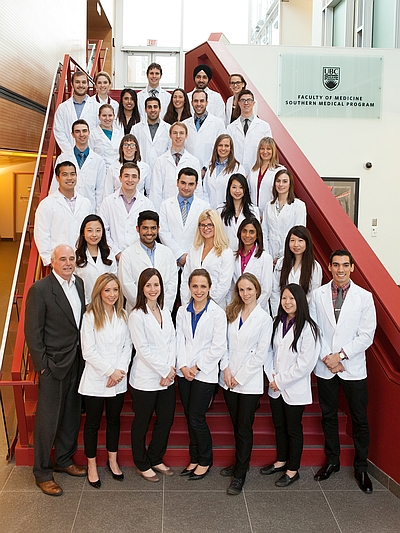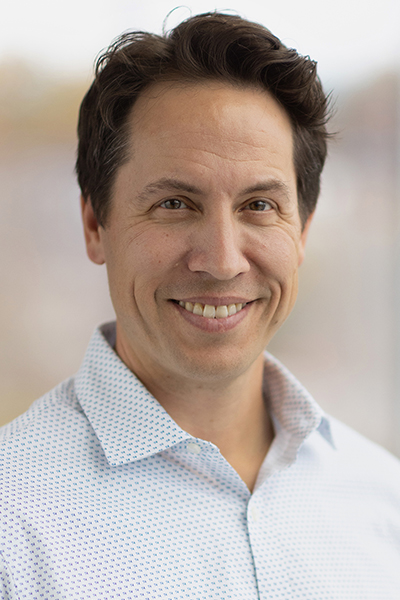 It is my distinct pleasure to congratulate the Southern Medical Program (SMP) Class of 2018. Our newest graduates are an outstanding group of individuals and it has been a privilege to witness their professional and personal growth over the past four years. The SMP’s thirty-five new doctors represent our largest graduating class and brings the total number of new doctors trained in the BC Interior to 125.
It is my distinct pleasure to congratulate the Southern Medical Program (SMP) Class of 2018. Our newest graduates are an outstanding group of individuals and it has been a privilege to witness their professional and personal growth over the past four years. The SMP’s thirty-five new doctors represent our largest graduating class and brings the total number of new doctors trained in the BC Interior to 125.
There is a tradition amongst Canadian medical schools to present a set of white gloves to the Dean if an entire class of students remains together as one group, from admission right through to graduation. It is a seldom occurrence given students often need to take leave for variety of personal reasons or the pursuit of an MD/PhD. This year, I have the unique honour of applauding those thirty-two SMP students who remained together throughout, and added a few accomplished students along the way. The SMP Class of 2018 will fondly be remembered as a white glove class.
I am proud to note that each of our students successfully matched through CaRMS (Canadian Residency Matching Service). Once again, a large contingent matched to family medicine and an increasing number are staying in the region to continue their training. Here are a few highlights for the 2018 class:
• All thirty-five students matched through CaRMS.
• Twenty-two students (63%) matched to family medicine.
• The balance of students matched to emergency medicine (3), pediatrics (3), psychiatry (2), diagnostic radiology, general surgery, internal medicine, obstetrics/gynecology, and orthopedic surgery.
• Six students matched to Interior BC programs including family medicine: Rural Okanagan/Kelowna (3), Kamloops, Okanagan South/Penticton; and emergency medicine: Kelowna.
• Twenty-six students (74%) matched to UBC residency programs.
Our distributed educational model continues to provide excellent training opportunities in the communities we hope SMP graduates will one day choose to serve. I would like thank our dedicated faculty and staff for continually striving to provide a phenomenal learning environment. I would also like to recognize our partnerships with Interior Health and other key stakeholders in supporting our program’s successes.
Congratulations to the SMP Class of 2018. I wish you all the best on the next chapter and look forward to you returning to the Interior to join our SMP faculty!
Dr. Allan Jones,
Regional Associate Dean, Interior and
Associate Vice-Provost, Medical Sciences UBC Okanagan










